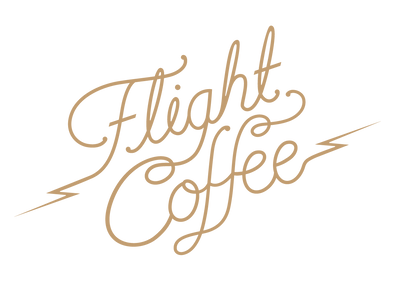Established in 2002 Timor Leste was the first new nation state of the new millennium, located at the Eastern end of the Indonesian Archipelago, it ranks 37th on the index of coffee producing countries by volume.

Cherries being laid out to dry on Raised African Drying Beds
Timor Leste endured a 25 yearlong conflict which claimed the lives of 200,000 people and left all infrastructure in ruins. Oil has been the nation's biggest export earner since 2002, making up 95% of its income, and has played a vital role in funding recovery and nation building efforts. However, with oil production winding down in the next two years and the petroleum fund running out in 10-14 years, there’s an urgent need for Timor Leste to diversify its income.
Coffee is the county’s second highest export earner after oil and 37% of households rely on it for their primary source of income. Developing the coffee sector is a natural and obvious choice for development but despite having somewhat of an established sector, it faces many challenges. Productivity is extremely low, about 1/5 that of Colombia, and profitability is low and volatile, as almost all coffee is sold in the commodity market at a discount NY ‘C’ price.

Ameta (Photo Credit to the one and only Jeff Hann)
There is very little incentive for coffee producers to increase the inputs that would render a higher quality product and enable them to receive a higher price. In many instances it is more appropriate to consider coffee producers ‘coffee gatherers’, collecting whatever cherry they can at whatever stage of ripeness in order to sell something to receive some form of income.
Given the volatility of the commodity market and the traditionally low prices associated with it, the situation in Timor is fairly unique and one that needs immediate attention. This is one of the core issues that Raw Material are working to solve.

Through several innovative and engaging ways, Raw Material, working with the Asian Development Bank and the Market Development Facility, have made significant headway in increasing the quality of coffee to record breaking levels.
As well as carrying out on the ground training with stakeholders and producers, in conjunction with Jeff Hann (the film maker of The Coffee Man film), Raw Material produced a custom 11-part video guide that was translated to Portuguese and Tetun (the local language). There are no data charges when using Facebook and WhatsApp (in fact, Facebook has become synonymous with the term ‘internet’ as used elsewhere when referencing the internet in Timor Leste) and as such is accessible to anyone with a smart phone, resulting in widespread dissemination of best practice processing techniques.

In addition to this Raw Material helped facilitate the production of a Coffee Game Show. Airing on the local TV network baristas and coffee producers traded places in their respective roles within the coffee industry, vying for points against competing teams. The show was designed to make high-quality practices common knowledge and accessible throughout rural households.
During the off season in 2019, Ameta travelled to New Zealand and spent four months with us here at Flight Coffee. He practiced English, roasting, cupping, spent time on the bar at The Hangar, and learnt about coffee quality from a roaster and barista point of view.

The Baboe Kriak wet mill from the sky
In 2018 Raw Material established the Atsabe Community Wet Mill, a first of its kind for the country. It serves as a centralised processing centre for the communities in the Suco Baboe Kraik area, in the Ermera province. It employs about 50 seasonal workers and 4 full time staff and provides a buying point for over 1000 people. Since then, two additional community wet mills have been built, Malabe and Koileki, and construction is underway to establish a cupping and QC lab in Atsabe.
The investment in Community Wet Mills was designed, amongst other important reasons, to centralise processing in order to control the variables that ultimately affect the quality of coffee once produced. While these are straight forward in theory, unless there are appropriate facilities available, along with a market willing to pay a reflective price for quality, it is almost impossible for producers to break through this ceiling on their own.

Coffee cherries being sorted and checked after a harvest
The impact the Community Wet Mills have had on the production of quality coffee has been dramatic. In 2018 Ameta won 1st, 3rd and 6th place in the national annual coffee quality competition, breaking the record of the highest quality score ever attained in the country. In 2019 Ameta placed 2nd, 3rd, 5th, and 8th in the competition and in both years set records for the highest prices received at export of 2-3x the national average. The 2020 season saw the team take out 1st, 3rd, 7th and 8th place. We had the 3rd place Parami Natural on our espresso offering during the first part of this year.
Raw Material was the only buyer raising the price of cherry post Covid-19, while all others have dropped compared with the 2019 season, Raw Material paid a price that resulted in about 10x the income for producers once costs of production are taken into account.

Various different lots laid out for drying
2021 represents a watershed moment for us at Flight Coffee. By replacing a non-Raw Material component in our Bomber and B2 blends with washed coffee from the Atsabe Community Wet Mill, 2 of our 3 espresso blends are 100% sourced through Raw Material. This alone provided market access for over 120 new families. Identified by the Raw Material 100% Logo on the labels, you can rest assured that the coffee in these blends are sourced through maximum impact channels.

